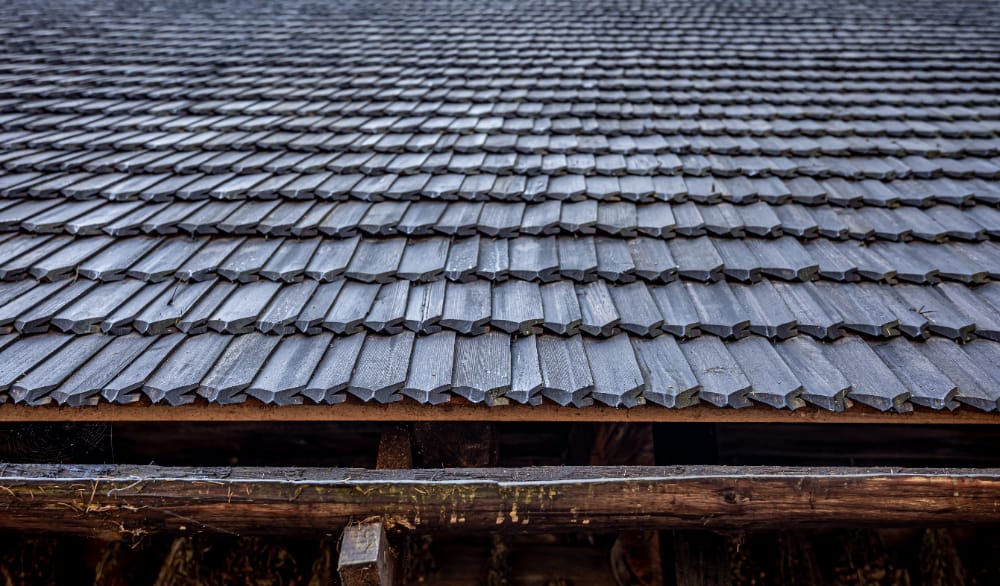When it comes to modern roofing solutions, single-ply roofing has emerged as one of the most popular choices for both commercial and residential buildings. Its versatility, durability, and ease of installation make it a standout option. But with several types available, selecting the best one for your needs can be challenging. Whether you’re considering a new roofing solution or seeking to understand the advantages and features of single-ply roofing, this article will help you make an informed decision.
Table of Contents:
- What is Single-Ply Roofing?
- Types of Single-Ply Roofing Systems
- Key Characteristics of Single-Ply Roofing
- Applications of Single-Ply Roofing
- Conclusion
What is Single-Ply Roofing?
Single-Ply Roofing is a type of roofing made from strong, synthetic materials that come in large sheets, which are laid out in a single layer on top of a building’s roof. The composition of single-ply roofing includes high-quality materials like rubber or thermoplastics, which are selected for their ability to resist wear and tear from environmental factors such as UV radiation, extreme temperatures, and chemical exposure.
These membranes are manufactured in large rolls, allowing for installation in expansive, seamless sheets. This design minimizes the risk of leaks and ensures a uniform, durable appearance across the roof. Single-ply roofing is popular because it is lightweight, easy to install, and adaptable to different building types, making it a practical choice for many construction projects.
Types of Single-Ply Roofing Systems
Single-ply roofing systems offer a variety of options to suit different building needs and environmental conditions. Here’s a breakdown of the three main types:
Thermoset Membranes
Thermoset membranes are known for their exceptional durability and resistance to harsh weather conditions. They’re typically made from synthetic rubber compounds that can withstand extreme temperatures and UV radiation. These membranes are often used in regions with fluctuating climates and are known for their long lifespan.
Thermoplastic Membranes
Thermoplastic membranes are another popular choice for single-ply roofing. They are heat-weldable, allowing for seamless installation and creating a strong, watertight barrier. This makes them ideal for roofs with complex shapes and details. Thermoplastic membranes are resistant to UV radiation, fire, and chemical exposure, making them a reliable choice for various building applications.
Modified Bitumen Membranes
Modified bitumen membranes are a hybrid option that combines traditional asphalt with modern polymers. They offer a balance of affordability and durability, making them suitable for a wide range of roofing projects. These membranes are typically installed in multiple layers, providing enhanced protection against water penetration and other environmental factors.
Key Characteristics of Single-Ply Roofing
Single-ply roofing offers several advantages that make it a popular choice for commercial and residential buildings. Here are some of its key characteristics:
Durability and Longevity
- Weather Resistance: Single-ply membranes are designed to withstand harsh weather conditions, including extreme temperatures, heavy rain, and strong winds.
- UV Resistance: They are highly resistant to UV radiation, which can degrade traditional roofing materials.
- Chemical Resistance: Many types of single-ply membranes are resistant to chemical spills and pollutants, making them suitable for industrial and commercial applications.
Energy Efficiency
- Reflective Properties: Many single-ply membranes have reflective properties that help reduce heat absorption, lowering cooling costs in warm climates.
- Reduced Energy Consumption: By reflecting solar radiation, these membranes can contribute to lower energy bills and a reduced environmental impact.
Ease of Installation
- Seamless Installation: Single-ply membranes are typically installed in large sheets, minimizing the number of seams and reducing the risk of leaks.
- Faster Installation: The ease of installation can lead to shorter project timelines and reduced labor costs.
Versatility
- Adaptability: Single-ply roofing can be installed on a variety of roof shapes and sizes, including flat, low-slope, and complex roofs.
- Customizable Solutions: Different types of single-ply membranes can be selected to meet specific project requirements, such as fire resistance, noise reduction, and aesthetic preferences.
Applications of Single-Ply Roofing
Single-ply roofing systems are a versatile solution for a variety of buildings, offering numerous benefits. Here are some of the common applications:
Commercial Buildings
Single-ply roofing is widely used in commercial settings due to its durability, cost-effectiveness, and energy efficiency. It is ideal for:
- Office Buildings: Provides a long-lasting, low-maintenance roofing solution.
- Warehouses and Distribution Centers: Offers excellent weather protection and resistance to heavy loads.
- Retail Spaces: Can be customized to enhance the building’s aesthetics and energy performance.
Industrial Buildings
Single-ply roofing is well-suited for industrial applications, especially those requiring chemical resistance and durability. It is commonly used for:
- Manufacturing Facilities: Provides protection against harsh chemicals, extreme temperatures, and heavy loads.
- Warehouses and Distribution Centers: Offers a durable and cost-effective solution for large-scale buildings.
Residential Buildings
While more commonly used in commercial and industrial settings, single-ply roofing is gaining popularity in residential applications, particularly for modern, flat-roof designs. It can provide a sleek, contemporary look and offer energy-efficient benefits.
Conclusion
Single-ply roofing stands out as a reliable, efficient, and adaptable option for both commercial and residential buildings. With its diverse types—thermoset, thermoplastic, and modified bitumen—each offering unique benefits, single-ply roofing systems can meet a variety of needs, from long-term durability to energy efficiency and ease of installation. Whether you need a durable solution for a commercial space or a sleek, modern roof for a residential project, single-ply roofing can be tailored to fit your requirements.
Single-ply roofing is a top choice for its many advantages, but finding the right fit for your project can be a crucial decision. If you’re ready to explore your options or need assistance with choosing the best solution, Ener-Spray is here to guide you every step of the way.
